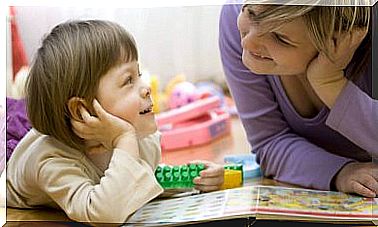4 Problems Of Child Disobedience And How To Deal With Them

Every child is sometimes disobedient, and it is common for parents to have to witness their child’s misbehavior that really tests their patience. In this article, we address four problems related to child disobedience and consider how to start solving them. Dealing with a child’s misbehavior is important because good and appropriate behavior helps the child cope better in life, achieve their goals, and live in harmony with other people.
4 problems of child disobedience and dealing with them
1. The child does not listen and it is difficult to go to school
Do you have to ask your child dozens of times every morning to get dressed and brush his teeth so he can go to school? However, the child does not listen, but seems to live completely in his own world. Such behavior is very common for a school-age child, but what can be done about it?
- Choose the school clothes for the next day the night before and pack the other items your child needs in a bag. This leaves a little more time in the mornings.
- Together, write a list of what the child needs to do in the morning before stepping out the front door. If the child cannot read yet, pictures can be used in the task list. This way the child knows what to do and in what order, and nothing is forgotten.
- Don’t tell the child, the consequences do speak for themselves. If your child has not yet got all their clothes on, ask them to put on the rest of their clothes on the way to school. That way he understands the rush or else he will have to go to school wearing pajamas.
- Set the desired time on the timer and tell the child how much time he or she still has to complete the necessary tasks.

2. The child repeatedly defies his parents
The child is defiant, and even if you repeatedly ask him to stop doing a certain thing, he will continue to do it. For example, he may throw the toy repeatedly, and when he is banned, he gets a tantrum. What can be done in such a situation?
- Give your child options. For example, if he wants to throw an object, ask him to go to the yard to throw a ball and tell him why not to throw objects inside. Be sure to use a firm but calm tone of voice.
- If the child still does not listen to you, explain to him that the actions will have consequences. You can tell him that if he throws the toy again, you will take it away from him. It is important that you also act on your words. So if a child still throws a toy, take it away from him or her immediately so he or she understands the connection between the act and the consequence. No matter how the child asks for the toy back, stay tight.
- Always remember to be empathetic and speak to your child respectfully.
- If a child causes a seizure, hug him and hold him in your arms until he calms down.
3. The child hits other children
Some children beat other children, for example, in situations where they don’t get what they want. When an adult tells a child to stop, the child may hit this too. What can be done in such a situation?
- Under no circumstances should you beat the child back, as physical punishment is always a bad thing and will not correct the child’s use.
- Help your child find other ways to deal with and express feelings of frustration and anger.
- Wait until the child has calmed down, and then tell him that beating is not allowed under any circumstances. List the consequences of hitting him. Such a consequence could be, for example, that friends no longer want to play with the child.

4. The child always rubs against
Every time you discipline a child, he laughs and rubs against him. In addition to the home, this may also happen in a school where the child speaks to his or her teachers in a disrespectful tone. What to do?
- When a child begins to behave in this way in your company, tell him or her immediately that insulting you or anyone else is not acceptable under any circumstances. Offensive and disrespectful behavior will not be tolerated in any form.
- Stay calm but tight and control your voice and body language. Don’t get annoyed, and don’t talk to your child until he or she has stopped talking to you. For example, say to the child, “If you talk to me like that, I won’t answer for you. When you speak to me in a respectful tone, we can discuss it. ”
- If the child continues to disrespect you or others, let them know that the misconduct has consequences. Also, always stick to these consequences, otherwise the child will quickly realize that this is just an empty threat.
- Every time a child speaks to you or other people in a respectful tone, praise him or her and confirm his or her good behavior.
Above, we outlined some of the most common behavioral problems associated with disobedience that parents face. You may want to try these for your own situation if your child has similar problems. If your child’s behavioral problems persist for a long time and are difficult to manage, we recommend that you seek professional help.









